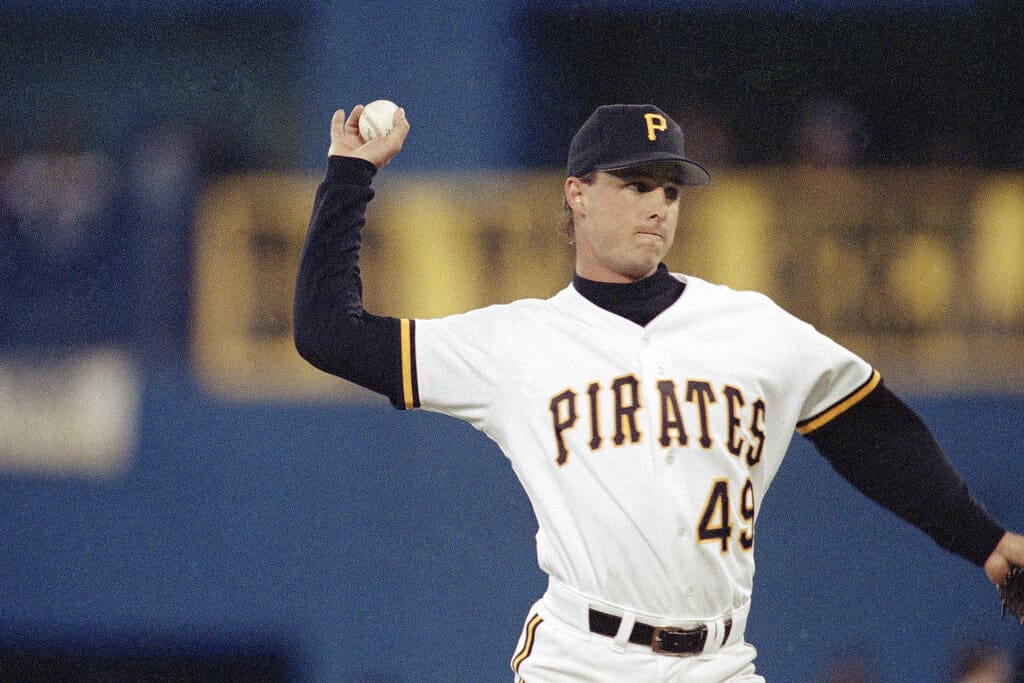Opinion
Perrotto: We Can All Learn a Lesson From Tim Wakefield

The interviews and conversations tend to run together after covering the Pittsburgh Pirates and Major League Baseball for 36 years.
However, some interviews stand out. I was reminded of that Sunday with the news that former Pittsburgh Pirates knuckleballer Tim Wakefield had died of cancer at 57.
It was August 1994 and the players’ strike that caused the unprecedented cancellation of that year’s World Series had just started. Looking for stories, I traveled to Buffalo to watch what was then the Pirates’ Triple-A team play a few games.
Wakefield was on that team, trying to regain the magic that had made him a rookie phenom and postseason sensation just two years earlier with the Pirates.
However, Wakefield was far away from that form. He was in the final stages of a season in which he would have a 5-15 record and 5.84 ERA despite facing minor-league hitters.
There were questions about whether Wakefield would ever pitch in the major leagues. Perhaps he was just a one-year wonder.
I approached Wakefield in the clubhouse that afternoon. Typical of the classy guy that he was, Wakefield pulled up a stool and invited me to sit down with him.
We proceeded to talk for 15-20 minutes and much of the interview was painful. Wakefield was equal parts frustrated and confused about how his career had taken a sharp downturn.
Suddenly, Wakefield became overwhelmed with emotion. Tears started streaming down his face.
“I’ve tried everything, and I don’t know what else I can do,” Wakefield said.
As a reporter, you are trained – or at least used to be – to not allow your emotions to become part of an interview or story.
However, in that moment, I nearly teared up. It was excruciating to sit there and see such a good man suffering.
Things didn’t get any better for Wakefield the next year in spring training. He pitched in an intrasquad game one morning at the Pirate City complex in Bradenton and the batters hit one rocket after another.
Wakefield was released the following morning. The days of him going 8-1 in 13 starts as rookie and then notching two complete-game victories over the Atlanta Braves in the 1992 National League Championship Series seemed like a lifetime ago.
Wakefield, through more tears, vowed not to give up.
“I’m not a quitter,” Wakefield said.
It’s a good thing he didn’t give in.
Six days later, the Boston Red Sox signed him as a free agent. He wound up winning 16 games that season in an amazing comeback story.
That was the beginning of a 17-year run with the Red Sox that didn’t conclude until he retired at the end of the 2011 season. He won two World Series with Boston and finished his career with 200 wins.
Perhaps Wakefield’s ability to persevere shouldn’t have been underestimated. The Pirates drafted him as a first baseman and were ready to release him in the minor leagues until deciding to convert him to a knuckleballer as a last resort.
So, Wakefield overcame the odds just to make it to the major league, let alone spend 19 years at baseball’s highest level.
Sadly, the one obstacle Wakefield could not overcome was a brain tumor. He is gone much too soon.
We can all take one valuable lesson from Wakefield, though. And that’s to never give up, no matter how bleak the situation might be.















